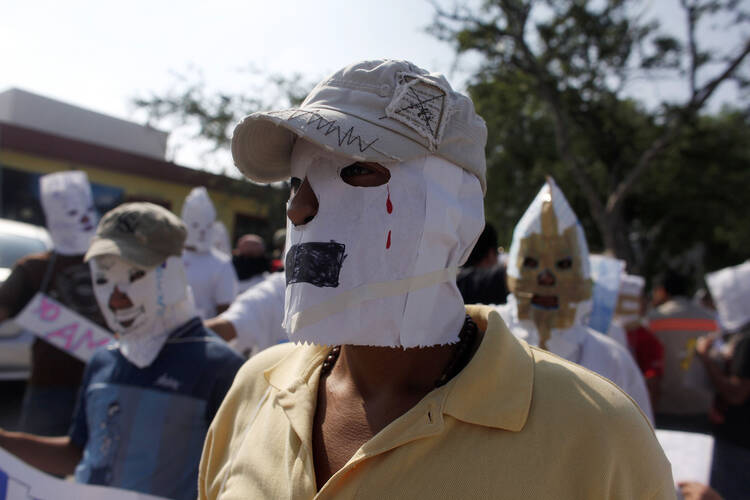On Tuesday Cardinal Oscar Andrés Rodriguez Maradiaga, Archbishop of Tegulcigalpa, Honduras and head of Pope Francis' nine-man Council of Cardinals advisory body spoke at Santa Clara University on "The Meaning of Mercy." A summary of his talk can be found here.
Earlier in the day the Cardinal spent an hour with 50 Santa Clara students, taking their questions (and sharing with them his great love of music).
In that session, he was asked about the situation in Central America, particularly for students. Here's what he had to say:
Central America had a lot of troubles during the '80s because there were ideological conflicts between different groups, especially in Guatemala and in El Salvador. But now the main concern is the problem of drug gangs. We have been victim I would say of a fight between the cartels of Mexico and Colombia. They were fighting themselves but using the territory of Central America. Especially in my country Honduras we had almost impunity with all those groups, until the last year, when the new government started, they started directly trying to prosecute these terrible cartels and they are succeeding because they started doing the only things they fear – their property is confiscated and extradition to the United States. And they already dealt with six of the most dangerous people--they had their own armies, they were corrupting police by pay.But now we fear the consequences of that , what is called in Spanish “sicariato” – it means they pay teenagers to kill people. $400-$500 to kill someone. This has been very bad, and very difficult to combat, because being minors, they cannot be taken to justice or to prison, and so sometimes they are in detention centers that are schools of corruption, instead of places to recover from that.
The cartels are like a chronic illness, I would say, that is very difficult to eradicate because we cannot answer violence with violence. So it’s necessary to try and educate them, to reeducate...
You’re lucky here in this country, because you study, you graduate and you will find some jobs. But it’s a pity; many times I am invited to the graduations in public universities [in Honduras]. Once I remember there were 600 graduates, and I said oh my goodness. They graduate to be unemployed. This is very sad.
There are no opportunities for the young to find a job, and this motivates migration, illegal migration. Once there was a lot of migration to Europe, especially to Spain. But now with the economic crisis, there are five million unemployed in Spain, so migration turns back to the States. They think that here they will find jobs.
You know, the answer is not migration. The answer is development. But when there is no development, what can people do? Of course we are trying to persuade our young people not to migrate, but what can they do when they have their families, and maybe they are a single mother with nothing to eat and maybe they would like to help?
This is a huge problem.
I'll be posting more sections from Cardinal Rodriguez's conversations at Santa Clara University in the coming days.








